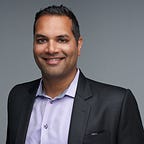A simple framework to conduct networking coffees while enjoying yourself
Networking isn’t about talking up your experience, schmoozing, or being charming. At it’s core, networking is about listening and making people feel valued. Introverts actually make the best networkers because of their propensity for listening rather than talking.
In my 30 minute networking coffees, I typically talk for 5–7 mins and most of that is asking questions. The trick is to go in prepared with questions to reduce the stress associated with keeping the conversation flowing smoothly.
An incredibly effective framework I use is called TIARA (from Steve Dalton of The 2-hour Job Search). It stands for: Trends, Insights, Advice, Resources, and Assignments.
With the TIARA framework, I actually enjoy my conversations as I am not stressed about thinking of “intelligent” questions in the moment. I can relax knowing that I have fallback questions in case I get stuck.
In the following section, I have adapted excerpts from Lucy Dotson’s The TIARA Framework: Quotes from “The 2-Hour Job Search” post to provide further color on this incredibly powerful networking framework.
Trends
- What trends are impacting your business right now?
“It’s much more fun as an interview subject to discuss what trends you think are most impacting your business than it is to describe the corporate culture. People enjoy talking about themselves more than they enjoy talking about their employers” (176).
Insights
- What surprises you most about your job/your employer?
- What’s the best lesson you’ve learned on the job?
- What’s been your most valuable experience at your employer so far, and why?
- If you had to attribute your success at your employer to one skill or trait, what would it be?
“Insight questions are very similar to Trend questions, but they start to become slightly more personal, rather than strictly business-related. We want the contact to gradually become more comfortable disclosing personal information to us, and that starts with getting him to share his personal feelings” (177).
“These answers [to Insight questions] are also useful during future interviews, both informationals and job interviews…the ability to source information is incredibly powerful for establishing credibility” (178).
Advice
- What can I be doing right now to prepare myself for a career in this field?
- If I got hired, what should I be sure to do within the first 30 days to ensure I get off to the fastest start possible?
- What do you know now that you wish you’d known when you were my age or in my position?
- If you were me, what would you be doing right now to maximize your chance of breaking into this industry or function?
“The biggest mistake job seekers make in the informational interview process is thinking that the conversation is about themselves, when it is really about the contact” (180).
“The ideal outcome of an informational is that your contact begins to view your job search success (or lack thereof) as a reflection of her own ability to give good guidance and/or be a good mentor” (180).
Resources
- What resources should I be sure to look into next?
- What next steps would you recommend for someone in my situation?
“Resource questions are designed to elicit where your contacts go when they need or want information about their industry, function, or business. These can be people, places, or things” (182).
“Regardless of how long Trends, Insights, and Advice questions occupy your informational interview, it is essential that you make it to the Resources question before the conversation ends. This question is what allows you to determine how to wrap up the conversation” (182)
If that resource is a person, you’ve hit the jackpot. Your contact is likely a booster, more willing to help you than the average contact. When a referral is offered, commit and schedule follow-up.
So what do you do in the ‘non-jackpot scenario,’ when the interviewer asks you specifically what kind of resources I’m looking for? You deflect the conversation toward nonhuman resources like websites, books, or magazines and move onto the Assignments section
Assignments
- What project(s) have you done that you felt added the most value?
- Have any projects increased in popularity recently at your organization?
- Have you had interns or contractors in the past? If so, what sort of projects have they done?
“The answers you get will help you build your mental toolbox of the types of projects that are increasingly in demand and importance at your targeted employers” (189).
Next Steps
If you don’t get the contact you are looking for, make a small, low-risk request for more of their time.
“Go into every informational interview assuming it’s going to be a two-part informational — with follow-up required to get a useful contact. If you ask for a contact during an initial informational and fail to get one, you’ve hit a dead end with that contact — it’s awful to lose a Booster simply because you put the person on the spot” (194).
Always thank them for their time and insights and send a follow-up note.
Parting Tips
Deep connections in a specific industry are critical during a pivot. Otherwise you will end up taking a shotgun approach and waster valuable time and mental energy.
Like most things in life, it’s all about consistency. By having a consistent approach for reaching out and networking, you reduce the mental energy needed to sustain the effort and be consistent over the long run.
The goal is to turn your network from passive to active and become your extended eyes and ears for sending potential job postings your way and/or connect you to people within their network. By asking for referrals and networking effectively, you too can expand your network and increase you chance of success.
In the next post, I will talk about alternative strategies to cold networking to generate incoming career opportunities.
